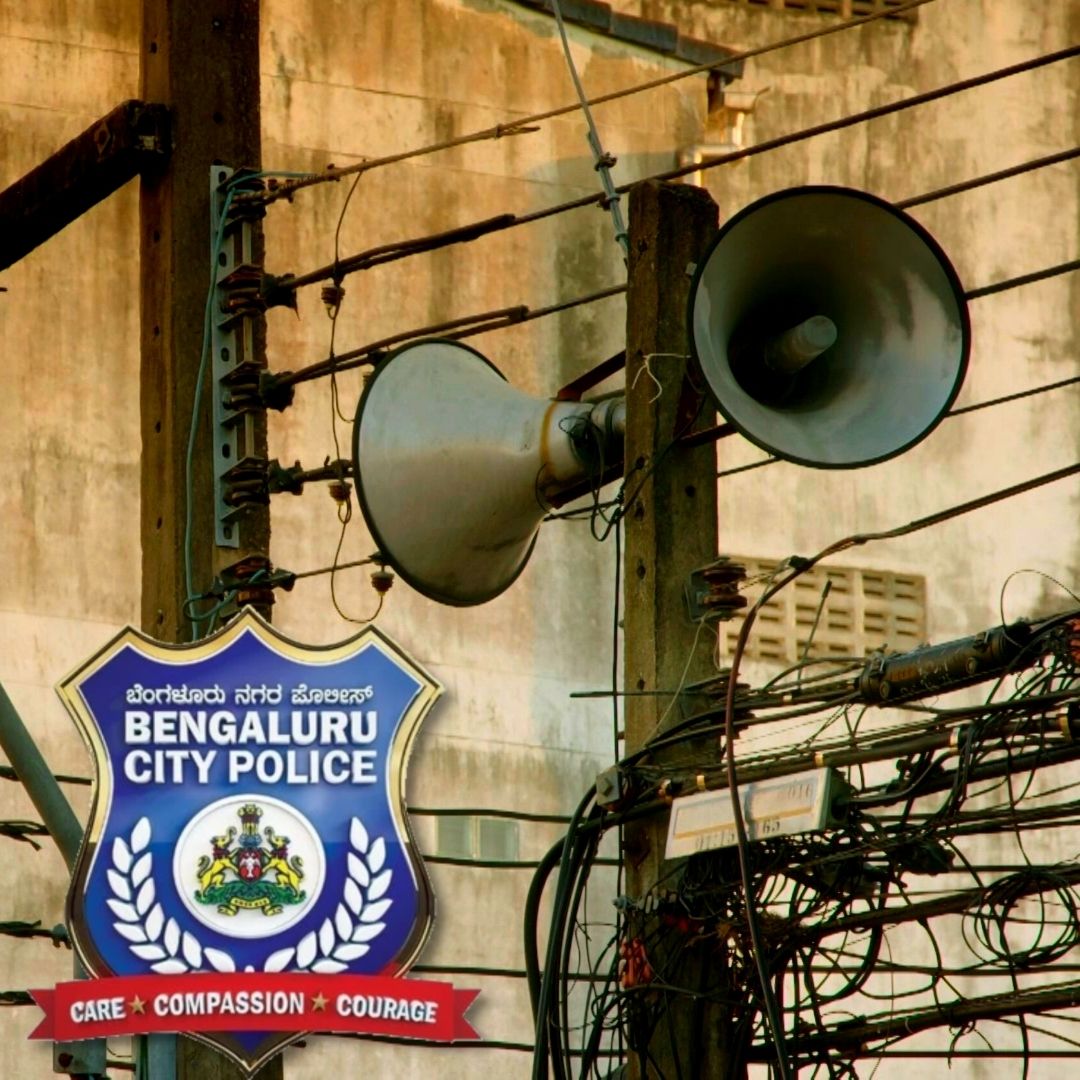
Image Credit: Unsplash (Representational)
As Bengaluru Police Starts Seizing Speakers From Religious Places, What Does The Noise Pollution Law Say?
Writer: Snehadri Sarkar
While he is a massive sports fanatic, his interest also lies in mainstream news and nitpicking trending and less talked about everyday issues.
Karnataka, 6 April 2022 8:40 AM GMT
Editor : Ankita Singh |
A literature lover who likes delving deeper into a wide range of societal issues and expresses her opinions about the same. Keeps looking for best-read recommendations while enjoying her coffee and tea.
Creatives : Snehadri Sarkar
While he is a massive sports fanatic, his interest also lies in mainstream news and nitpicking trending and less talked about everyday issues.
On April 5, the city police commissioner Kamal Pant had stated that numerous microphones were seized from religious institutions where the court's orders were not followed.
With numerous right-wing Hindu groups kickstarting campaigns against playing 'azaan' via loudspeakers at mosques, Bengaluru police have started seizing microphones from religious places of worship, which reportedly defied court orders when it comes to noise pollution. However, what does the law say?
On April 5, the city police commissioner Kamal Pant had stated that numerous microphones were seized from religious institutions where the court's orders were not followed. The police also booked cases, and this initiative will continue to observe the prescribed decibel levels, and actions will be taken, reported The New Indian Express.
Furthermore, Pant also revealed that 301 religious places, including churches, mosques and temples, have been sent notices in Bengaluru and instructed them to follow the rules on noise according to the Karnataka State Pollution Control Board (KSPCB).
While the Bengaluru city police labelled it a part of an awareness drive, it reportedly came after various Hindu fringe activists vowed to play Hanuman Chalisa through loudspeakers in the morning to counter the azaan. On Tuesday, Sri Rama Sene chief Pramod Muthalik had allegedly warned that if the government failed to remove microphones from all the mosques in the city, the Sene would boost its demonstration by singing bhajans using loudspeakers inside temples.
What Does The Noise Pollution Law Tell Us?
As per the official Noise Pollution (Regulation and Control) Rules, 2000, restrictions on the usage of any types of loudspeakers or public address systems include not putting to use one "except after obtaining written permission from the authority" and not using a public address system or loudspeaker during night time between 10 pm and 6 am, except for in closed premises for communication within – conference rooms, banquet halls, auditoria or community halls.
Furthermore, the rules also stated that: "The State Government may subject to such terms and conditions as are necessary to reduce noise pollution, permit the use of loudspeakers or public address systems during night hours (between 10 pm to midnight on or during any cultural or religious festive occasion of a limited duration not exceeding fifteen days in all during a calendar year."
In 2021, the south division police had started a special drive and had managed to seize microphones, issued notices and file cases against temples and mosques. Earlier this year, the south division police had also sent notices to 11 places of worship, including the famous Dodda Ganapathi Temple, where they warned them about cases if they violated the legal noise pollution laws. However, these notices were withdrawn as they drew flak from many BJP leaders.
Also Read: Indian Govt Assists Central Bank To Circumvent Inflation Law: Report
 All section
All section














